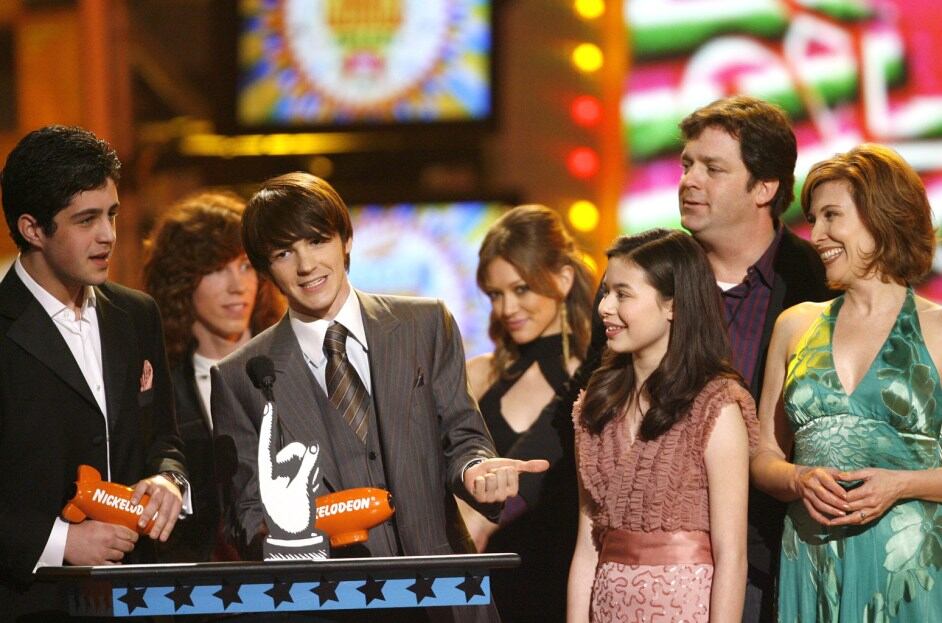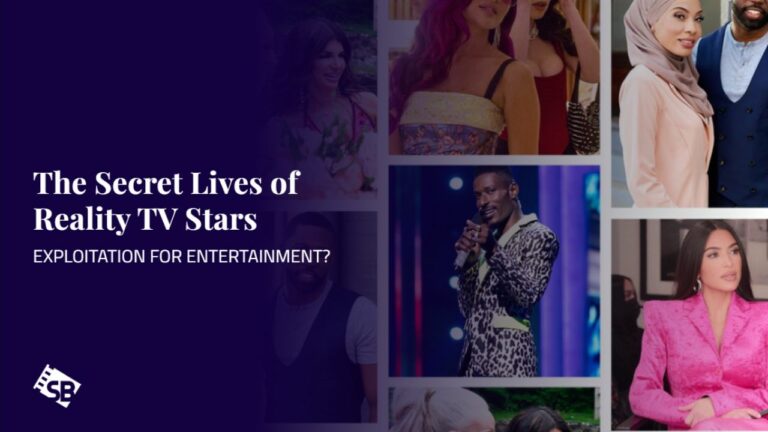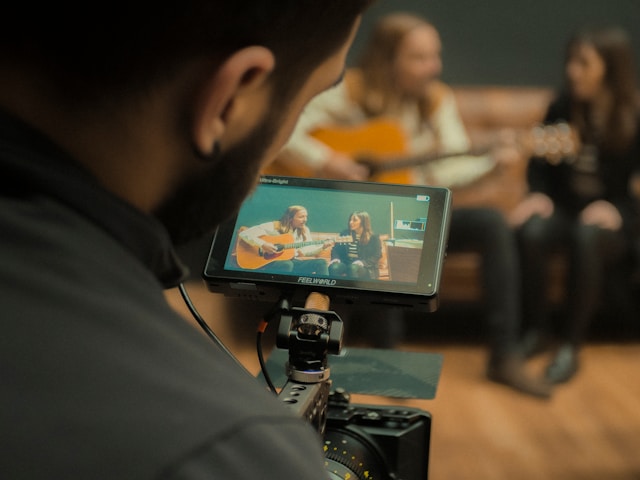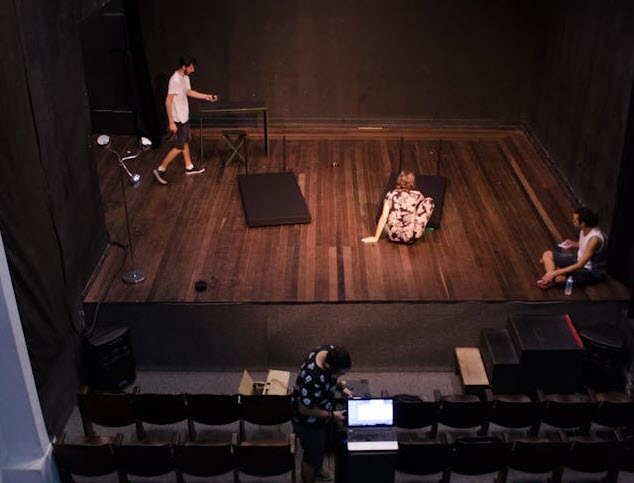As a huge fan of Love Is Blind, I’ve always been fascinated by the lives of reality TV stars and the idea that love can find a way even when the people involved haven’t seen each other. So, it is no wonder that I was shocked beyond belief when I came across news that Renee Poche, a participant from Season 5, had filed a lawsuit against the production staff.
Quite frankly, shocked is an understatement for how I felt learning that someone from a show I admire was possibly mistreated by the creators of the show.
This revelation opened my eyes to a troubling aspect of reality TV: the exploitation of these stars for the sake of entertainment. Compelled by this, I began a deep dive into the inner workings of this genre, seeking to uncover the harsh realities faced by reality TV celebrities.
Join me in exploring the darker side of reality TV and learn the systemic issues within the industry that often go unnoticed by viewers.
The Allure of Secret Lives of Reality TV Stars
It is no surprise that reality TV is one of the favorite genres to stream, as 69% of viewers enjoy them on streaming platforms. The fascination with this genre stems from its unique blend of real-life drama and the allure of instant celebrity.
Ordinary individuals are thrust into extraordinary situations, their reactions broadcast for entertainment. This voyeuristic appeal is powerful, drawing viewers who relish the unpredictability and raw emotion that scripted shows can’t always deliver.
Behind the Scenes: The Price of Fame
Becoming a reality TV star can seem like a fast track to fame and fortune, but the limelight often casts long, unsettling shadows. The psychological and emotional toll on participants can be profound and pervasive, overshadowing the initial excitement of being on television.
Here’s how the secret lives of reality TV stars have an adverse effect on mental and emotional well-being:
Psychological and Emotional Toll
Participants are frequently thrust into high-pressure environments, with cameras capturing their every move, often at their most vulnerable. They’re expected to navigate complex social dynamics, confront personal fears, and sometimes expose painful parts of their past—all in front of a national audience.
This intense scrutiny can lead to significant stress, anxiety, and depression. The situation is further complicated by online communities that dissect their every decision, leading to relentless social media criticism that can erode self-esteem and trigger mental health issues.
Many reality TV stars have spoken out about the lack of psychological support provided during and after filming. Nathanial Valentino, a participant in Married at First Sight UK, revealed that the experience of filming took a significant toll on his mental health.
Before I went on the show, I was in the best place ever. I need therapy now. Once the filming ended, I did not get out of bed for two straight weeks.
While some shows offer access to on-set therapists, the support often ends once the cameras stop rolling. This abrupt withdrawal of support leaves many participants struggling to cope with their newfound fame and the re-entry into their not-so-normal lives.
Love Island has faced scrutiny after the suicides of former contestants Sophie Gradon and Mike Thalassitis. The show has since introduced stricter mental health checks for its contestants, but concerns remain about the effectiveness of these measures.
Pressure to Maintain Public Interest and Ratings
Reality TV thrives on ratings, and participants quickly learn that their continued presence on a show depends on how well they enchant the audience. This dynamic creates a pressure cooker of expectations, where stars often feel compelled to act out or conform to specific archetypes to maintain viewer interest.
Producers also nudge participants towards particular actions or reactions that promise higher ratings but push the stars towards emotional extremes. Recently, celebrities starring in NBC, Bravo, and E! have filed a collective lawsuit about mistreatment on the set, showing the facts about reality TV stars’ lives.
Directors and producers of the show have attempted to manufacture instability through food and sleep deprivation and giving copious alcohol. They also denied cast members mental health treatment and exploited minors by not paying them. – Lawyers stated in the lawsuit file.
Participants are even portrayed in a certain light—edited to appear as the villain, the romantic, or the fool—roles that can stick with them long after the season ends. This typecasting can severely impact their personal and professional lives, trapping them in an unchosen narrative.
Cast Members Speak Out on Realities of Reality TV
Here are some cases that unveil the politics and mistreatment that is inflicted on reality TV show celebrities behind the camera:
Quiet on Set Cast – Not Staying Quiet Anymore!

Source: Billboard
Quiet on Set, a compelling new docuseries from Investigation Discovery, uncovers disturbing allegations of sexual assault and pervasive toxic behavior on the sets of some of Nickelodeon’s most iconic shows.
The show opens with a chilling warning from the narrator:
If you were a child of the ’90s, this is going to ruin that for you.
This statement sets the tone for a documentary that promises to permanently alter the perception of cherished programs like “All That,” “Zoey 101″, and ‘The Amanda Show.”
Spanning four episodes, the series reveals the alarming experiences of Nickelodeon star Drake Bell, who suffered sexual assault by a crew member. Additionally, it exposes the hostile and sexist work environment perpetuated by showrunner Dan Schneider.
A fifth extra episode, scheduled to air on April 7, aims to delve deeper by featuring more interviews with former child stars, shedding further light on the grave issues regarding behind-the-scenes of reality TV.
The documentary highlights the particular vulnerability of child actors in the entertainment industry, where the absence of federal protective legislation leaves them exposed to exploitation and abuse. It points out the inconsistencies in labor policies and the inadequacy of safeguards against sexual predators, which vary significantly from state to state. ‘
Moreover, the enforcement of these state laws is often weak, undermining their effectiveness in protecting young actors.
Reality TV’s Façade Broken By Married at First Sight Cast

Source: Mirror
When Gemma Rose Barnes joined the cast of “Married at First Sight” (Mafs), she was propelled by a hopeful vision of finding true love under the unique pressures of reality television. However, her experience swiftly devolved into a scenario far removed from her expectations.
Barnes recounted that despite expressing initial reservations about being paired improperly, she was reassured by producers that the audience’s current preference for genuine matches meant she had nothing to worry about. Yet, as filming progressed, her situation grew increasingly dire.
She made several complaints about her husband to the producers, voicing her discomfort and requesting to leave the show. Contrary to her claims of being coerced to stay for the sake of the storyline, Channel 4 maintains that she was free to leave at any time.
The environment on set did little to assuage concerns, as contestants were reportedly plied with alcohol, with producers at times secretly providing extra drinks before filming to intensify interactions, a claim Channel 4 denies. The impact of alcohol, combined with the stress of production, led to heightened tensions and dramatic confrontations, exacerbating the emotional strain on the participants.
Adding to the complexity, another contestant, George Roberts, faced serious allegations from ex-partners about past emotional abuse after his appearance on the show, which Channel 4 claimed to have been unaware of.
Breaking the Silence: Morgan Enselme Exposing The Stark Reality
In 2019, Morgan Enselme, a former contestant on the French adaptation of Big Brother, “Secret Story France 5,” took a bold step that many reality stars shy away from. In a revealing 30-minute YouTube video, which has since garnered over 4 million views, Enselme provided an unprecedented glimpse into the often opaque world of reality TV.
Enselme’s allegations shed light on the intense psychological manipulation she endured during her participation in the show back in 2011. She described how the production controlled even the most personal aspects of her life, including access to necessary medication like her prescribed antihistamines.
This restriction exacerbated her physical symptoms and contributed to the development of post-traumatic stress disorder (PTSD) after the show concluded. On the show, her role required a total seclusion from the outside world for 13 weeks, which was far from what she had anticipated.
Instead of an exciting reality TV stint, it became a period of intense psychological stress. Enselme’s video aimed to educate potential future reality TV stars about the potential pitfalls and to prepare them more effectively for what they might encounter.
The Audience’s Role
The pull of reality TV is undeniable. It offers an unscripted, seemingly authentic peek into the lives and drama of others, which can be both engrossing and entertaining. However, this fascination also plays a critical role in the ethical landscape of reality television. As consumers of these shows, the audience’s preferences and demands significantly shape what is produced and how participants are treated.
Viewer Complicity and Demand for Dramatic Content
Audiences are not just passive observers but active participants in the reality TV ecosystem. Their ratings and social media engagement directly influence the decisions made by producers and networks. When dramatic, conflict-ridden episodes receive higher viewer ratings, it sends a clear message to producers about what viewers want to see. This demand drives networks to orchestrate increasingly provocative scenarios, often at the expense of the participant’s well-being.
Ethical Considerations for the Audience
This dynamic raises important ethical questions for viewers. Each individual must consider their role in perpetuating potentially harmful industry practices.
Awareness is the first step toward change. Viewers can start by questioning the production practices behind their favorite shows, advocating for more transparent and ethical standards, and choosing to support programs that prioritize the well-being of their participants.
As more people become conscious of these issues, there is potential for a shift in how reality TV is consumed and produced. This shift could lead to a demand for content that is not only entertaining but also ethically produced, fostering a healthier environment for participants.
Shaping a New Era of Reality TV Shows
It’s time for viewers and industry stakeholders to consider this entertainment form’s broader consequences. By fostering awareness and advocating for change, there is hope for a reality TV landscape that entertains without exploiting, a balance where ethical responsibility and engaging television coexist harmoniously.
This blog aims not just to inform about the secret lives of reality TV stars but to encourage a reflection on the content we consume and the real lives it affects. As we tune in to the next dramatic episode, let’s not forget the truths of reality TV shows.



